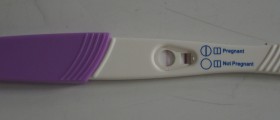
In some cases this treatment proves to be adequate and appropriate solution, especially when the cause of LPD is inadequate corpus luteum performance. On the other hand, if inadequate corpus luteum performance isn't the cause of LPD, and if follicle development is inadequate, progesterone supplement will not help. For this reason it is extremely important that when detecting LPD, doctors measured midcycle follicle size with ultrasound and performs blood test to detect estradiol levels. In case follicle development is inadequate ovulation stimulant such as Clomid (tablets) or some other similar medicine (such as injectable drug) is an adequate solution. Drugs such as these help the follicle to mature appropriately and thus enabling a chance for healthy pregnancy by producing an egg with higher quality and enabling a better-functioning corpus luteum. However, in case you have been diagnosed with LPD because your linings fail to respond to normal progesterone levels, doctors often perform treatments that include injections of human Chorionic gonadotropin to further stimulate the corpus luteum. The downsize of the injections is that they cause false positive pregnancy results.
There are another 2 over-the-counter treatments available (which doesn't mean you should experiment with the treatment yourself!), and these are vitamin B6 and progesterone cream. Vitamin B6 is taken orally in dosages from 50 mg to 200 mg per day. This vitamin B6 is also perfectly safe to take during pregnancy. It main role is that if taken during the entire month, it helps lengthen the luteal phase. Additional benefits of vitamin B6 are also easing PMS symptoms and morning sickness. Usually a progesterone cream is targeted for menopausal women, but it can also be applied to lengthen the luteal phase, in that case cream with natural progesterone works best. Of course you should be careful not to use progesterone creams that contain wild yam because the herb raises estrogen levels too. Nevertheless, being over the counter, you should definitely ask your doctor for advice before using the progesterone cream or vitamin B6.
- Photo courtesy of Nicola Sapiens De Mitri by Flickr: www.flickr.com/photos/quatar/12977337115/
















Your thoughts on this
Loading...